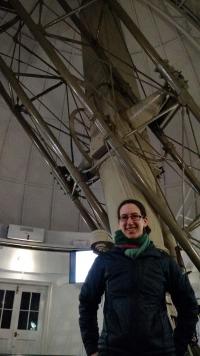WKLisa Grossman

Physical sciences news editor, New Scientist
Lisa Grossman is the physical sciences news editor of New Scientist. Her work has appeared in New Scientist, Wired.com, and Science News, among other publications. She received the 2015 IOP-STFC Physics Journalism Prize for her story about the hunt for natural quasicrystals. She lives in Cambridge, MA.
Pitch Guidelines
Our general news pitch guidelines emphasise that New Scientist is first and foremost a leisure read - it is informative, authoritative and entertaining. Our readers love science and love being surprised. The most important thing is that the story be new - we have a fresh magazine out every week, so everything we cover has to be a specific advance that actually moves science forward, not something that's been chugging along for a while. News hooks must be sharp. That feature you've been polishing for months is probably fantastic, but I'm not the right person to pitch it to. That said, a weekly magazine is a hungry beast, so there are lots of opportunities to pitch again if your first shot bounces off the rim.
I'm the physics and astronomy news editor, so I'm looking for space and physics pitches particularly. But don't let that stop you if you have a story in another beat - I can pass along good ideas to the relevant editor or give you their contact info.
These are some of the questions I ask myself before commissioning a story. If you can answer yes to half of these, you’re onto something.
• Is it new? Is it unique or superlative in some way (first, biggest, oldest)? Is there a good reason to write about it now?
• Is the top line (not the headline, the main thrust of the story) instantly grabby and a must-read?
• Would normal people (non-physicists, non-scientists) find it fascinating if you told them about it in the pub? Does it make you go “wow, neat”?
• Does it answer a Big Question about the universe (where did we/the solar system/the universe come from? Where are we/the solar system/the universe going? How did it all get to be the way it is? Are we alone?)
• Will it be useful in the real world? When/how much?
• Is there a real world news event it ties in to?
• Is it happening right now somewhere in the world? If so, can we go see it?
• Does it challenge previously held beliefs?
Speaking:
-
Saturday, October 10th, 3:15 pm to 4:30 pm




